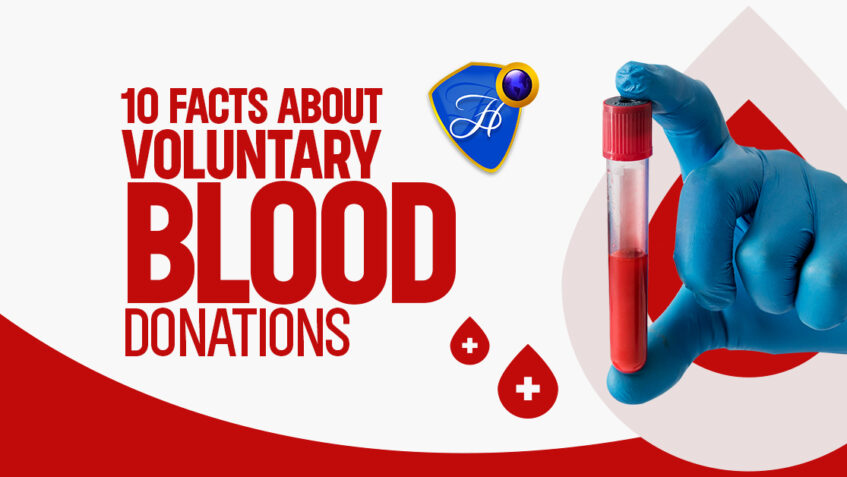10 FACTS ABOUT VOLUNTARY BLOOD DONATIONS
Daily, thousands of people around the world depend on receiving donated blood and blood products to stay alive. The gift of blood for transfusion is one of the most precious gifts anyone can give to help humanity, it is one of the highest forms of volunteering.
Voluntary blood donors are superheroes and lifesavers! June 14th is World Blood Donor Day; this event appreciates voluntary, unpaid blood donors and raises awareness of the need for regular blood donations. The WHO theme for this year’s campaign is a call to action: “Be there for someone else. Give blood. Share life.” To help you prepare to play your part, we highlighted ten important facts about voluntary blood donation. Some of these show you how your act of kindness will help others, and others show you how blood donation helps you.
1. Blood is in short supply: 75% of the world’s population are potential recipients, but less than 1.2% are donors. Rare blood types like O Negative are usually in higher demand. There is no known substitute for blood, only real blood will do.
2. It can save many: One pint of blood donated can save up to three lives when divided into its component parts. Your gift of love will keep a child, a parent, a sibling, or a friend alive for one more day.
3. It is safe and quick: The process is safe with the use of sterile, disposable equipment for each donor, so there is no risk of infection. Also, the entire process can be done within 20 minutes once you enter the donation center or blood bank.
4. It helps you keep track of your health: Simple physical examinations and blood tests are routine for blood donation, to determine if a volunteer is eligible to donate blood. This means one can detect health concerns early and take appropriate action, but this shouldn’t be your means of testing for diseases. Always consult your doctor.
5. It promotes cardiovascular health: Blood viscosity can be reduced by donating blood on a regular basis. Studies in USA and Finland show that blood donation lessens the risk of heart attacks and strokes. People who donated blood at least once a year had 88% lower risk of heart attacks.
6. It helps optimize blood iron levels: Iron is needed to produce red blood cells, but too much iron can lead to life-threatening conditions like liver disease. Donating blood reduces iron levels as you encourage your body to produce new red blood cells.
7. It reduces the risk of cancer: Donating blood reduces iron, and thus the risk of cancer. Results from a 4-year study on the subject showed that blood donors had lower risk of liver, lung, colon, and throat cancers due to reduced oxidative stress when iron was released from the bloodstream.
8. It doesn’t take much: To protect the giver, blood donation is regulated. You are advised to donate blood no more that thrice a year (at 3-4 months’ intervals). Also, no more than one pint (473.2ml) of blood can be collected each time you donate.
9. It burns calories: Donating one pint of blood will burn an estimate of 650 calories, so you shed some weight as a result. This is a fact, not an advantage. Please note that we do not recommend using blood donations as a weight loss method.
10. It helps your mental health: While blood donation helps you physically, much can be said for its psychological effects. Your giving blood makes a difference in the lives of others, and there is nothing more fulfilling than the knowledge that you are saving lives, which is your God-given purpose. Even if you’re declared ineligible to donate blood due to low weight or low blood count, or other factors, you can still be a part of the World Blood Donor Day by sponsoring the donation activities, or helping out at the donation centers. Please visit www.traumacareinternational.org to sign up






No Comments